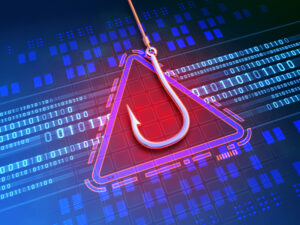
Stay Vigilant: Top Tips for Phishing Prevention in Your Company
In an era where digital threats loom larger with each passing day, phishing remains one of the most insidious tactics employed by cybercriminals. This deceptive

It’s important to spot a phishing scam so you don’t accidentally give away your personal information or money. Phishing scams are a type of online fraud that attempt to steal your personal information.
Spotting a phishing scam can be difficult, but there are some signs you can look for. If an email, website, or text message has any of the following four signs, it may be a phishing scam:
If you think you’ve received a phishing scam, don’t respond to it. Delete the email, text message, or website right away. You can also report the scam to the Federal Trade Commission.
There are some steps you can take to protect yourself from phishing scams.
RE2Tech can help you protect your business from phishing scams and other cyber threats. Our team of security experts can provide you with the latest information on cybersecurity risks and help you create a security plan for your business.
Contact us today to learn more about our services.

In an era where digital threats loom larger with each passing day, phishing remains one of the most insidious tactics employed by cybercriminals. This deceptive

In the ever-evolving landscape of information technology, small businesses face the dual challenges of safeguarding sensitive information and adhering to strict regulatory standards. Compliance solutions

In today’s digital age, staying one step ahead in the IT landscape is no longer a luxury but a necessity. Ensuring seamless network performance, safeguarding